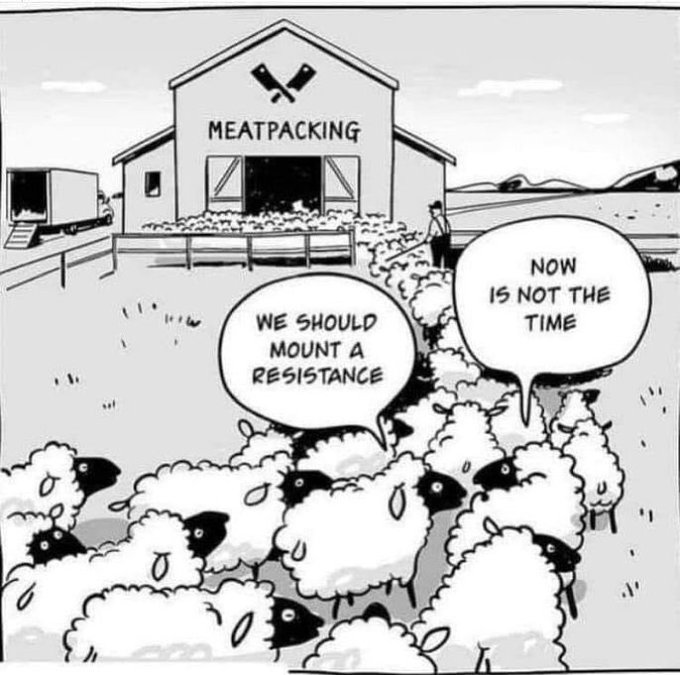With the current hard move to the right let’s look at the current mess more clearly, we’re watching the slow-motion implosion of geopolitical sanity, driven by a feedback loop of paranoia, expansionism, and elitist delusion all round. I will use an example, the Russian neo-monarchy we installed with the fall of the #USSR is both authoritarian and insulated from reality, it harbours a deeply ingrained – but not entirely unfounded – fear, that the West wants to partition and neuter Russia, to finally break its imperial spine and sideline it permanently from global power.
The response to this is predicable, the wannabe Russian Empire moves to lash outwards. Expand. Destabilize. Subvert. Sabotage. Whether in Ukraine, Syria, Africa, or via bot farms and proxy networks, the strategy is the same, externalize the crisis, manufacture mess, weaken the “enemy”, and in doing so, fortify internal control. It’s a survival tactic wrapped in a brutal shell of historical grievance and nationalist myth-making.
But, what we do, in the West, in response is the real insanity, our response mirrors the very thing they fear. The West’s led by Washington #neoliberal hawks, Eurocentrists, and the ever-profitable security-industrial complex – isn’t, peace, trade, exchange, strategic clarity, de-escalation, or rebuilding multilateral resilience. No. It’s tit-for-tat sabotage, economic warfare, arms races, and public rhetoric that edges ever closer to advocating regime change, disintegration, and total subjugation. The wet dream of the #nastyfew think tank ghouls, a post-Russia carved up, pacified, and absorbed into the #closedweb of western corporate “freedom.” they tried it after the breakup of the #USSR, and now we repeat the same crap plan.

Do we really think it helps to become the very monster the Russians, are not without foundation, paranoid about, and already believe us to be? Yes, we do keep repeating this path of endless #fuckwittery feedback loops, imperial reaction and counter-reaction has been the geopolitics of the #deathcult for way too long. The world we have now is a paranoid empire meets a suicidal empire, Russia, trapped in its authoritarian echo chamber, acts from a place of imperial insecurity. It remembers the Cold War, NATO’s slow crawl eastward, the gutting of its economy in the ’90s under western advisors. Its fear is rooted in historical trauma, yes – but also in hard analysis. The West has pushed precisely the policies Russia fears.
Instead of “us” building genuine alternatives – non-aligned diplomacy, economic multipolarity, climate cooperation – we escalate. We double down. We treat their paranoia not as a challenge to deconstruct but a justification for more militarism, more sanctions, more media war, more fantasy of breaking the Russian state entirely. This is not a path to peace, this is not a path to any humanistic justice, this is mess-making on a planetary scale. And in the era of #climatechaos, where we face shared planetary collapse, it’s more than just dangerous, it’s become the hard right’s apocalyptic fantasy of civilizational suicide.
Let’s be very clear, this cycle is not driven by “the people.” It’s the #nastyfew, the hard-right elitists, ideologues, the nationalist technocrats and billionaire opportunists who feed on fear and profit from instability. In Russia, they wear the mask of Orthodox autocracy. In the West, they wear the suits of think tanks and boardrooms. But their vision is now the same, control through collapse.
They aren’t interested in saving the world, they want to own the wreckage. They’re building bunkers while the rest of us fight over ruins. They’re funding war while cutting climate adaptation, speak of “freedom” while mining the last drops of oil and blood. This isn’t realism, it’s delusion, this isn’t defence, it’s offence by inertia, this isn’t strategy. What it is, is the new #deathcult replacing the dead old one of 40 years of neoliberalism.
Where now? What we don’t need is more war games, we don’t need to break Russia or “win” against China. A key though is we don’t need to be right – we need to be alive, and for that we need radical de-escalation, grassroots diplomacy, and growing planetary solidarity. The answer to paranoid imperialism isn’t more imperialism – it’s compost. Yes, compost. We need to take this mess, this decaying structure of late-stage empire, and break it down into something fertile.

We need to stop thinking like empires and start thinking like ecologies. Build networks, not states, trust, not surveillance, infrastructure of care, not bombs, media for truth, not narrative warfare. We can’t outsource survival to failing nation-states, or hand over justice to militaries. What we need is a grassroots push to step outside the spiral. The #openweb gives us a glimpse of this possibility: federated, decentralized, trust-based networks that grow from the ground, not fall from the sky. What comes next depends on what we build in the growing cracks. Because we can’t keep feeding this mess.
